MDA Completes Multi-Functional 18,000 SF Office Expansion for Nonprofit Organization in Financial District
Montroy DeMarco Architecture has designed the expansion section of the national not-for-profit organization’s office in Manhattan for a total occupancy of 63, including 21 attorney offices, one double suite, and two open office areas that seat up to 27 administrative and support staff. The layout is functional and staff friendly, with multiple communal spaces, while incorporating acoustical control and natural light. Image/floor plan courtesy of Montroy DeMarco Architecture
New York, NY – Montroy DeMarco Architecture (MDA) has completed an 18,200-square foot expansion to an existing 20,000-square foot office space in the Financial District for a national not-for-profit organization focused on providing legal services.
“The organization has rapidly grown in recent years, serving the needs of an increasing number of people in the U.S. justice system. Our goal was to create an expansion that was employee-friendly and offered multi-functional public spaces to serve various purposes for the organization,” said MDA Principal Steven Andersen. “MDA designed the organization’s original offices in 2010. We were excited to design an expansion that would enable the group to work more efficiently to serve the needs of their clients,” he added.
“The organization’s staff has significantly grown, and this additional space will provide private offices for attorneys and support staff, conference areas for board meetings and smaller gatherings, and flexible event venues for organization-wide meetings and presentations,” shared Ajay Waghmare, MDA Project Manager.
The MDA team also included Job Captains Adeline Tse and Tammy Huang, and Interior Designer Eleanor Boehm. Robert Derector Associates provided MEP design, and Gilsanz Murray Steficek was the structural engineer for glass partitions. The general contractor was J.A. Jennings. GFB is the landlord.
Budget-Conscious Design Accommodates Functional Needs
With this expansion, the tenant now occupies two separate suites that are accessed from the same elevator lobby. The original space is located to the north of the elevator bank, while the expansion is located to the south.
As Waghmare explains, “Our design philosophy was to maximize the functionality and comfort of the space, while balancing the budget to accommodate the not-for-profit client’s financial requirements. The design team had to be efficient with space planning, allowing maximum flexibility, while maintaining privacy and reducing noise transmission of confidential conversations. The design also incorporated the latest audiovisual technology to allow collaborations between offices located across the United States.”
At the expansion suite’s entry, a glass wall with double doors spans the full width of the lobby, allowing for a clear view of visitors arriving into the elevator corridor. The organization’s logo is prominently displayed on the corridor wall adjacent to the new suite’s entrance. The reception area features a modular desk of wood grain and white laminate finishes by Logiflex, which are highlighted by a custom fabricated, three-dimensional felt backdrop mural by Design Text.
The reception area flows into a multi-purpose space for both employee and visitor use. Two visitor seating areas are furnished with plush upholstered sofas and chairs centered around laminate oval coffee tables. Directly adjacent to the seating area is a café featuring a dining counter, separate sink counter, refrigerator, and storage cabinets. The café and seating area leads directly to a 1,250-square foot boardroom that is separated from the internal corridor by a full height glass partition. The boardroom can be divided by movable acoustical partitions into three smaller individual spaces, each of which has a dedicated entry. Maximum flexibility of the space is provided by this grouping of reception, café, and meeting space, as the area can function both for special events as well as for smaller executive and employee meetings.
Employee areas fill the remainder of the suite, which has a total occupancy of 63, including 21 attorney offices, one double suite, and two open office areas that seat up to 27 administrative and support staff. The layout had to be functional and staff friendly, with multiple communal spaces, while incorporating acoustical control and natural light.
Windows surround the new section on three sides. MADGI’s design maximizes the amount of natural light that penetrates the interior, while also providing acoustical privacy for attorney-client meetings and phone calls. The attorney offices lining the perimeter have full height glass partitions on the interior walls to permit natural light to pass into the centrally located administrative and support staff office spaces. The private office and boardroom partitions, by Tagwall, are double glazed ION system was utilized for acoustical privacy and have sections of etched glass to lend visual privacy as well. In the central open office areas, low partitions likewise maximize the natural light levels. Floating baffles by Rockfon are hung from ceilings in the open office for acoustical attenuation. Several private “conversation booths” with café tables and chairs and acoustic wall panels serve as quiet, private spaces for telephone calls and small meetings.
An employee pantry creates a central meeting point for the staff. One wall of the space is dedicated to a food preparation area with a continuous counter, small appliances, refrigerator, sink, and storage cabinets. On the facing wall, a continuous upholstered banquette with square laminate bistro tables provides seating, while a long bar height table with eight stools fills the center of the space.
The private offices and workstations feature white laminated furniture by AIS. Compel “Mojo” conference chairs with black upholstery and chrome finishes are used in the boardroom. World Task chairs by Humanscale provide ergonomic employee seating, while Intu high density stackable chairs by OFS offer flexible seating in the pantry, café, and private meeting rooms. Asteri folding conference table by Prismatique allowed the layout and configuration flexibility in the divisible boardroom.
Laminated bamboo wood flooring, with area rugs that define the seating areas, is used in the lobby, while the boardroom, offices, and employee seating areas are carpeted. In an example of a reuse of the existing materials, the original concrete floors were sealed and polished in the employee pantry and internal corridors. A suspended acoustic tile ceiling was installed in the conference room and a soffited gypsum board ceiling with downlights and two circular feature lighting fixtures finishes the lobby. Ceilings throughout the remainder of the space are open to the deck above. Exposed ductwork and the deck are painted white. Both linear and circular suspended light fixtures provide lighting. All linear fixtures are by National Lighting, the recessed wall washer fixtures are by Kreon, downlights are by Amerlux, and Artemide produced decorative pendants.
The neutral color palette of white walls and furnishings, gray carpet, and tan concrete flooring is punctuated with bright accents of blue and purple in both the acoustical wall panels and the interior rims of the suspended light fixtures. In addition, the walls feature large portraits of the organization’s clients.
Montroy DeMarco Architecture
Based in New York City, Montroy DeMarco Architecture (MDA) is a prominent architecture and planning firm predominantly serving commercial, institutional, retail, multi-family, senior housing, and hospitality markets in the greater New York area. MDA’s affiliate Montroy Andersen DeMarco (MADGI) provides interior design services to commercial, institutional, and multi-family clients. Three principals lead the studios: Daniel Montroy, AIA; Richard J. DeMarco, AIA; and Steven Andersen. The affiliated studios employ 30 architects, interior designers, LEED professionals, project managers, and support staff. Building Design & Construction magazine ranks the firm as the 133rd largest designer in the United States. Engineering News-Record lists the firm as the 81st largest design firm in the New York/New Jersey region.
MDA’s markets include commercial, office, retail, entertainment, institutional, educational, and residential and mixed-use redevelopments and new buildings. The firm is recognized for its expertise in commercial property conversions and market repositionings. Headed by principals, the specialized studios have served as designer for some of the most innovative – and challenging – projects in the city. MDA is known for its design quality and expertise in cost control, technology, and addressing complex zoning regulations.
The firm was the design force behind the headquarters offices of a multitude of global corporate bluebloods and technology firms such as TravelClick, National Futures Association, Mediabistro, and Mimeo, among others. It’s recent corporate interior work also includes the 150,000-sq.-ft. East Hanover, N.J., U.S. headquarters and laboratories and the 75,000-sq.-ft. Manhattan offices and testing labs of Givaudan Fragrance. The studio has designed approximately 10 million square feet of office and common use space for both tenants and leading commercial landlords in New York City, including Colliers International, Capital Properties, The Durst Organization, John Hancock, and Barings.
MDA’s architectural, executive design, and design collaborations portfolio includes the 230-room citizenM New York hotel in Times Square; the 183,000-sq.-ft., 17-story 20 East End Avenue luxury condominium; The Dillon Townhouses and Condominiums, a 205,000-sq.-ft residential complex at 425 West 53rd Street that received an AIA New York State Award of Merit; the 11-story 560 West 24th Street luxury condominium; the 82,000-sq.-ft. Soori Highline luxury condominium on West 29th Street; and the market repositioning of the 100,000-sq.-ft. 160 Fifth Avenue office tower in Manhattan as well as the $330 million redevelopment of The Watermark at Brooklyn Heights luxury senior living community in Brooklyn, NY and the 10-story, 85-apartment Silver Star residential/retail mixed-use building in Long Island City, NY.
MDA recently served as the architect for two of the most prominent tourist attractions in Manhattan: One World Observatory – the 90,000-sq.-ft. observation deck and retail space atop the new World Trade Center, and the renovated landmark Rainbow Room on top of 30 Rockefeller Plaza. The firm’s retail projects include multiple store locations of U.S. Polo Assn., Camper, and Zara; two New York City locations of Bill’s Bar & Burger; the Rogue and Le Coq Rico restaurants in Manhattan; the Discovery TSX retail/entertainment space in Times Square; and showrooms of Jordache and PEM America. Additional information: www.montroydemarco.com and www.madgi.com.
Source: Informed Infrastructure / Photo Credit: Ola Wilk/Marketing Communications
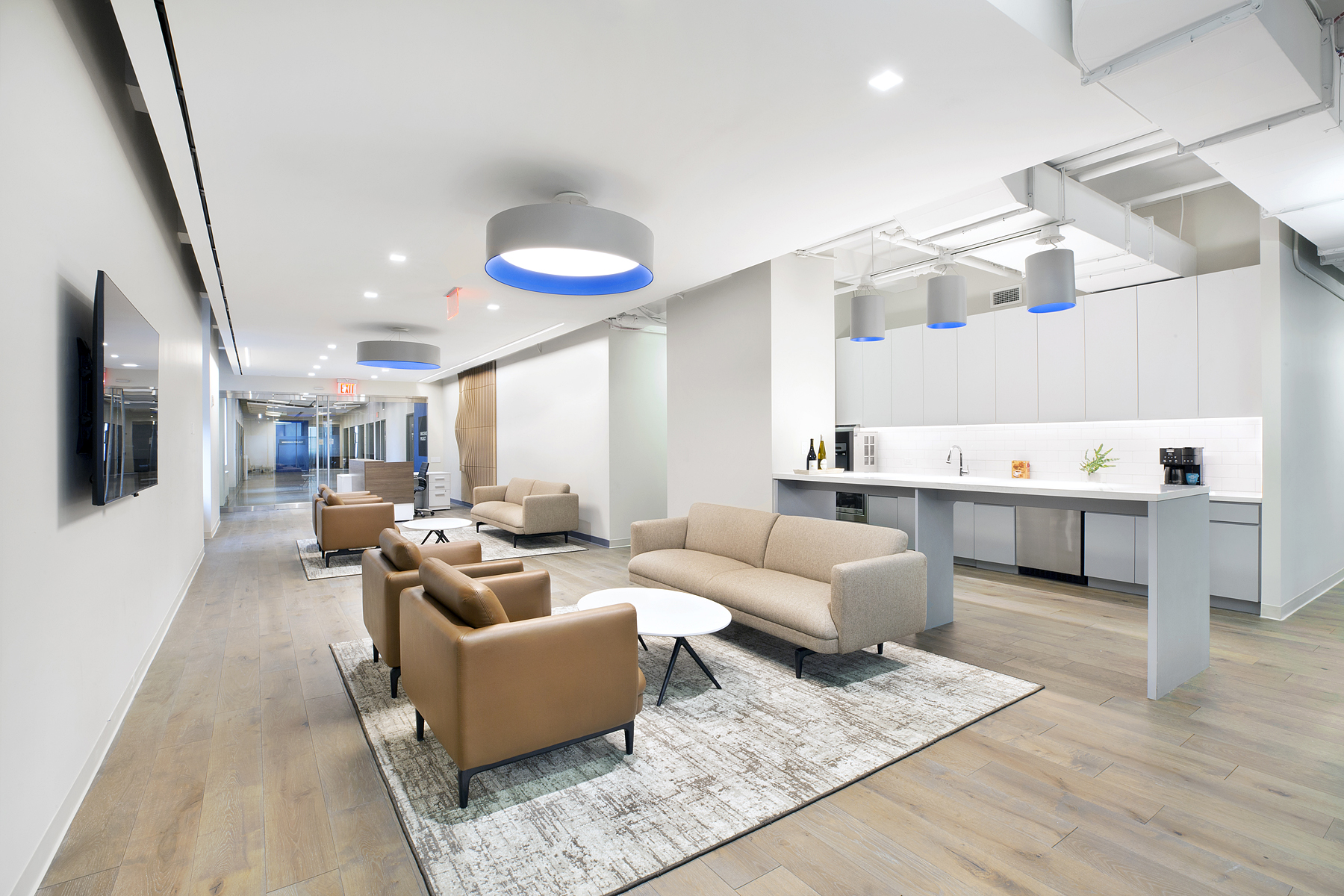
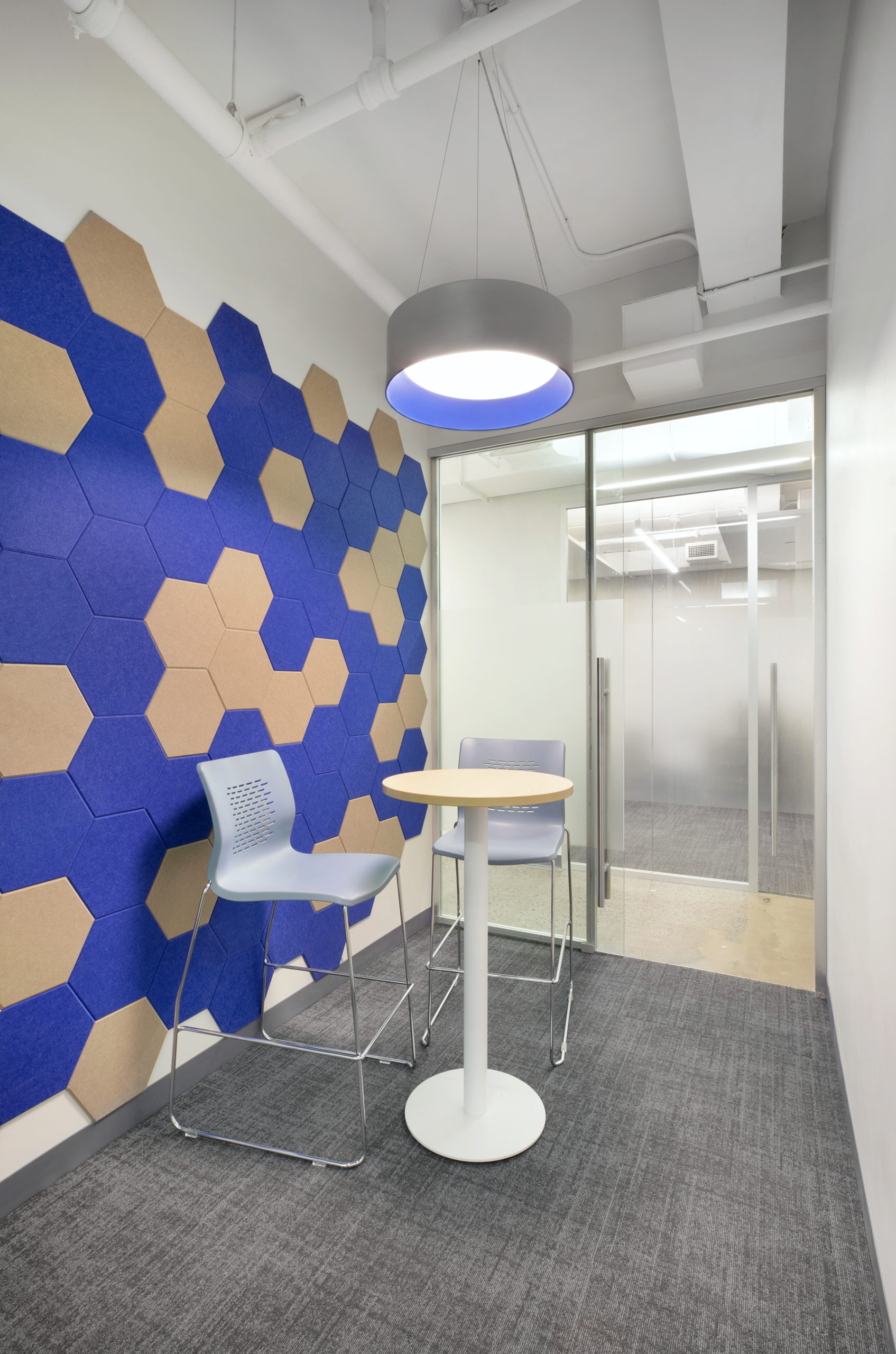
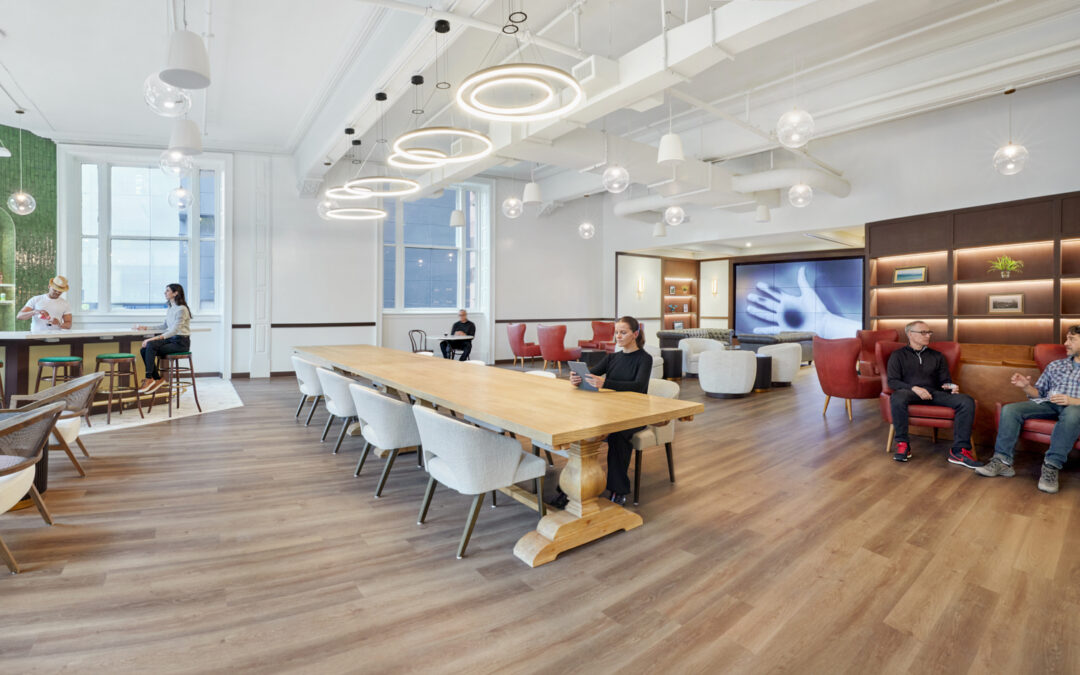
MDA is One of the Nation’s Largest Workplace Interior Architecture Firms
Montroy DeMarco Architecture LLP is one of the Nation's Largest Workplace Interior and Interior Fitout Architecture and Architecture Engineering (AE) Firms! Check out Building Design+Construction Magazine's Annual 2024 Giants 400 Report....
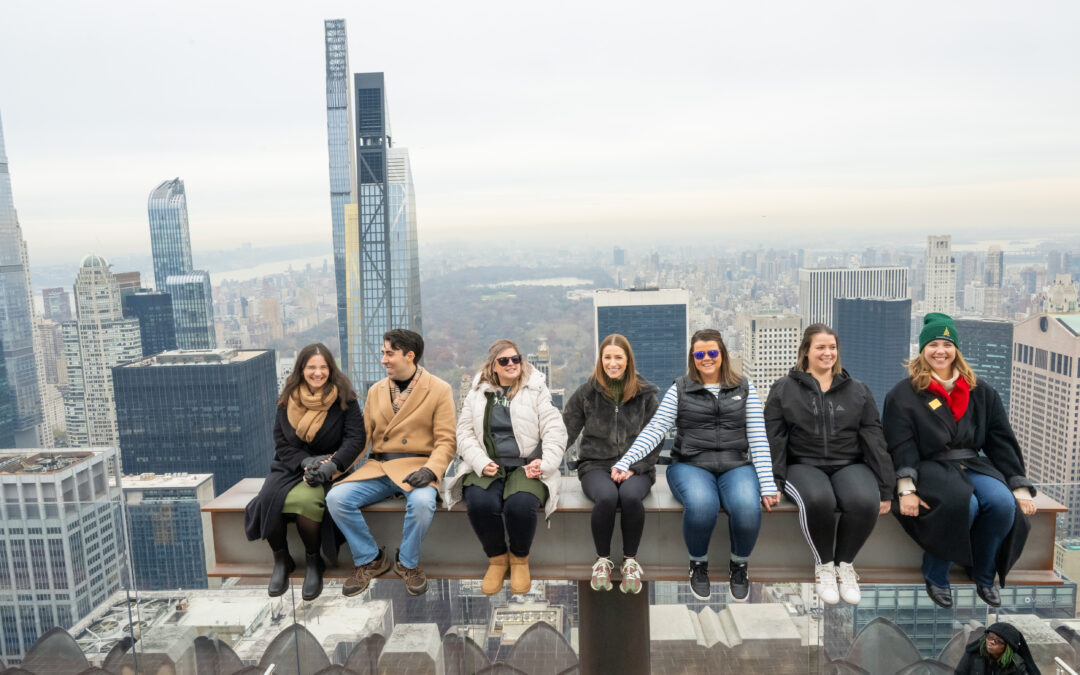
Top of the Rock Redevelopment – AISC 2025 IDEAS² Award Winner for Excellence in Adaptive Reuse
The idea of installing attractions at the top of a 90-year-old urban icon is enough to make anyone’s stomach drop, but the team behind New York City’s Top of the Rock Redevelopment pulled it off (at a hugely complex and challenging jobsite, no less). Some...
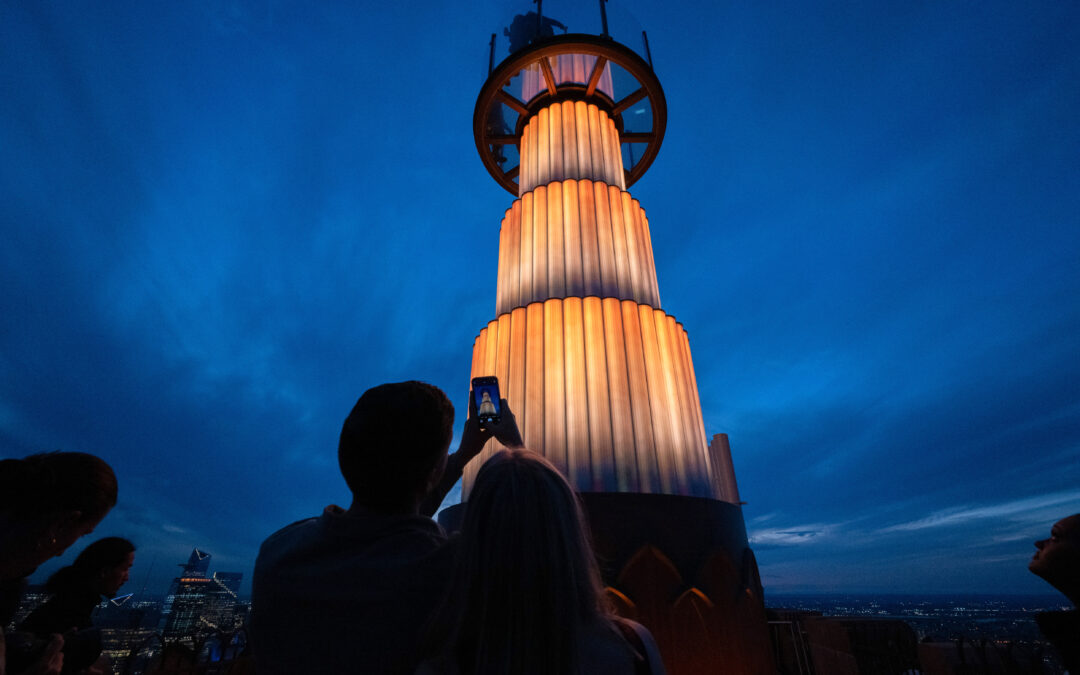
Top of the Rock Opens 900 Ft. High Skylift Attraction
Skylift at Top of the Rock, a new attraction atop 30 Rock, elevates visitors nearly 900 feet in the air above street level for a spectacular, entirely unobstructed, 360-degree view of New York City. The design team for the Skylift included owner Tishman Speyer...
